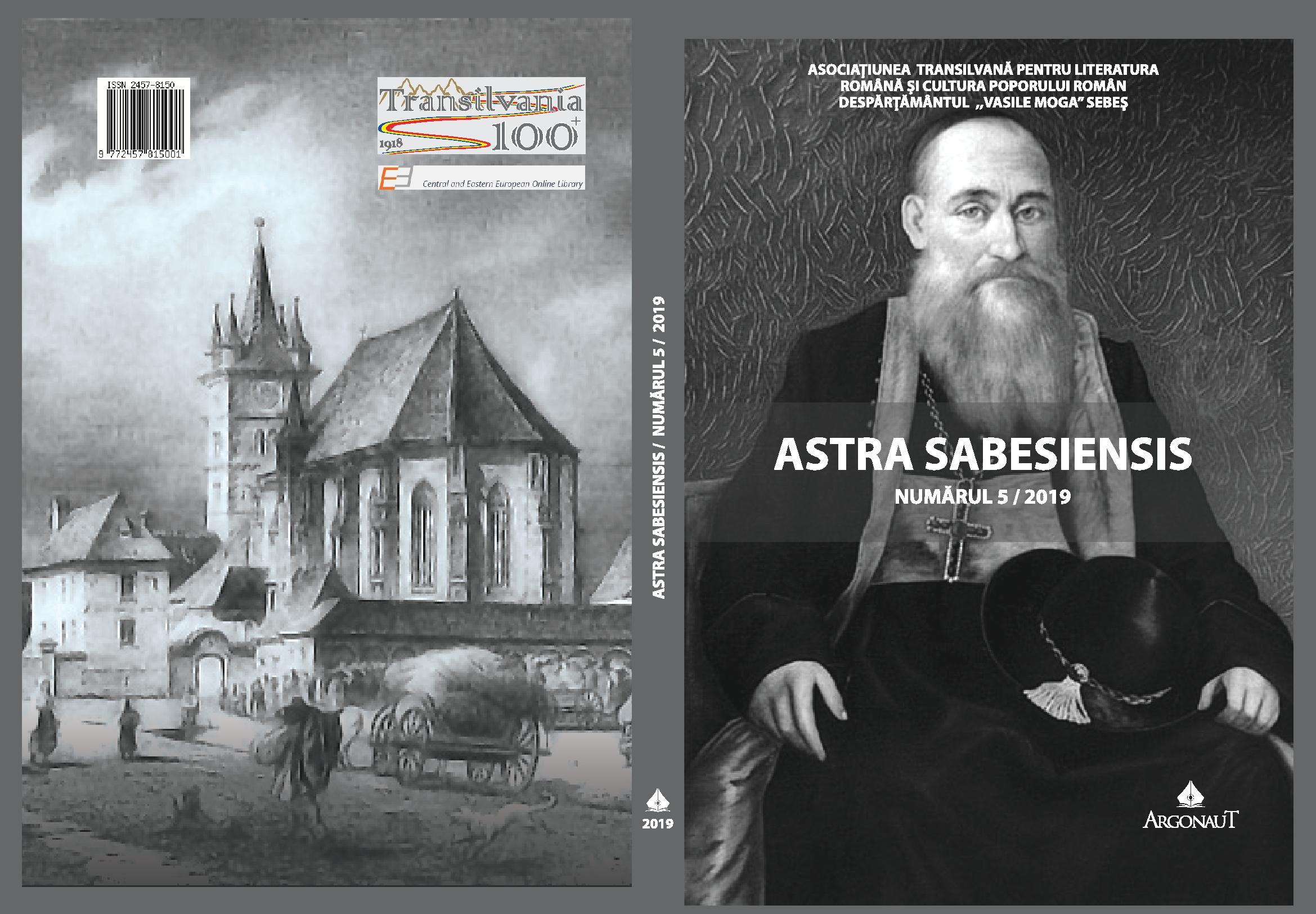BLAJUL ŞI FORMAREA INTELECTUALĂ
A PREOŢILOR GRECO-CATOLICI DIN TURDA (1754-1948)
The City of Blaj and the Intellectual Formation
of the Greek-Catholic Priests from Turda (1754-1948)
Author(s): Răzvan Mihai NeaguSubject(s): History, Modern Age, Recent History (1900 till today), 19th Century, Pre-WW I & WW I (1900 -1919)
Published by: Asociaţiunea Transilvană pentru Literatura Română şi Cultura Poporului Român - ASTRA
Keywords: confession;Theological Seminary; parish; arch-priest parish district; intelligentsia;
Summary/Abstract: This study aims to analyze the role of Blaj and its schools in the intellectual preparation of the Greek-Catholics priests from Turda. One does not aim to rebuild the biography of the Greek-Catholic clerks from Turda, but mainly an educational micro biography. The present study has as landmarks two fundamental years: 1754 that coincides with the opening of schools in Blaj and 1948 which coincides with the abusive abolition of the Romanian Church united with Rome. Blaj represents a powerful center of the Romanian spirit in Transylvania. Through the schools which functioned here, Blaj remains the core for the rising of the national self-consciousness in Transylvania. Blaj and its schools, especially the Theological Seminary, which became the Theological Academy in the inter-war period, had the monopoly of the intellectual formation of the Greek-Catholic Clergy in Transylvania. This situation was noticeable also at the level of Turda, in all the Greek-Catholic parishes that existed along the years. The united priesthood in Turda played a very important role in the history of the Romanian community in the town settled on the Arieş river.
Journal: Astra Sabesiensis
- Issue Year: V/2019
- Issue No: 5
- Page Range: 67-78
- Page Count: 12
- Language: Romanian

